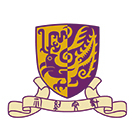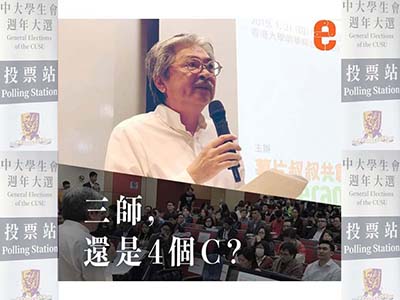



  




 



 
|
| 2019 年 2 月 24 日 第 16期 | |||
|
|
序 言 |
|||
|
(English version only) Dear readers, February is the election month within the student community. Campus-wide polls are being held for the general election of many student unions and all student senators. On the generally tranquil school-days, a range of electioneering activities has come into view. Policy platforms, ballot boxes and polling stations are everywhere. In rare unison, newspapers from both sides of the political aisle have expressed astonishment towards the keen competition between two cabinets in our University for running the central student union. They define it very unusual amidst the low ebb of student movement nowadays. In many other tertiary institutions, there are no candidates for the office of student unions this year. What make our students so enthusiastic in becoming student leaders? Or it is only by accident? This could instigate lengthy discussion. My interest is yet laid in the qualities that a student leader has to possess in the 21st century. Without these core attributes, we may still succeed in the election (or a race) but our empty talk will lead fellows nowhere. A month ago, I attended the first Esperanza Community Meet-up "What is the Meaning of Education?" where John Tsang (the founder of Esperanza) delivered an inaugurating speech. He suggested "rather than hounding for the three professions that many parents want their children to pursue i.e. doctors, lawyers and accountants, we should advocate the importance of the '4C' namely creativity, critical thinking, collaboration and communication skills". Although this '4C' concept is no more than a platitude, the reason behind is worth pondering over. Tsang cited a study from the Oxford University that half of the existing jobs would disappear in 25 years, and the three professions (doctors, lawyers and accountants) might soon be taken over by technology like artificial intelligence and robots. He added another C viz. curiosity, followed by empathy and resilience, as the most important 21st century skills. Irrespective of the validity of the aforesaid Oxford study, creativity, critical thinking, collaboration, communication skills, curiosity, empathy and resilience are really what a student leader should attain in the context of globalisation. While young adults take a more prominent stage in modern regime and in the world of large enterprises, it is a shirking of responsibility to sweep value education for our students under the carpet. Training up merely the techniques of young adults could no longer meet the challenges of the future. As to my dictionary of value education, the supreme quality for leadership is unquestionably the "4I" - integrity, integrity, integrity and integrity. Sincerely yours, Irene Ng |
|
||
|
|
|||
|
過去通訊
| |
|
|
|
|
|
